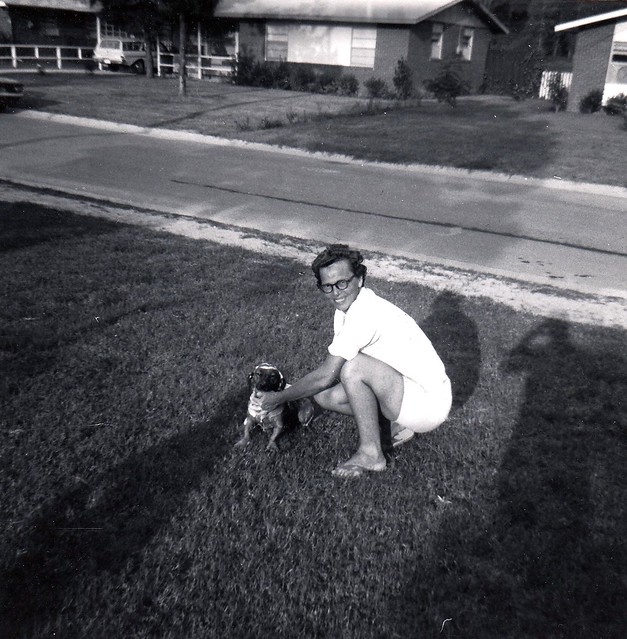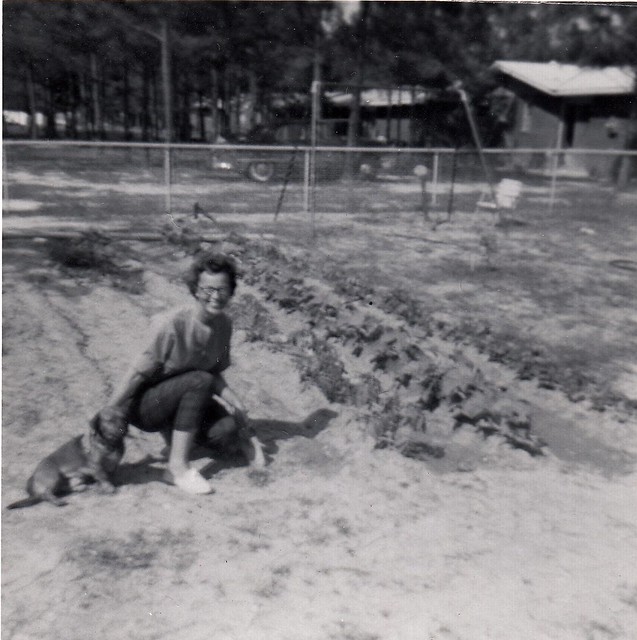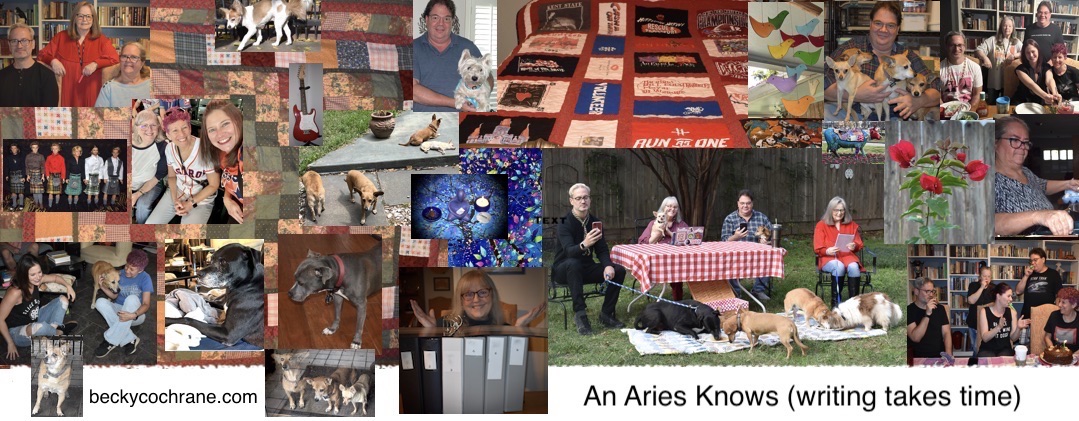Among the pictures I used for my masthead collage is this one:

James had asked for more information about it. This is when we lived in Columbus, Georgia. I can’t be sure, but I suspect this is the first time my parents bought a house. They’d lived in student housing at Bama, then when they left Tuscaloosa and my father was teaching (and I think being a principal) at a tiny rural school, I can’t imagine they had enough money to buy a house. [ETA: My brother has told me that my parents did buy a house when my father got that first teaching job. The Columbus house is actually the third house they ever bought, because they also owned a house for a few months in Colorado, where Daddy was stationed after I was born and we returned from Germany.]
After my father went back into the Army, they usually lived in quarters or would have known any civilian housing was temporary so it was best to rent. But for whatever reason, between my father’s stints at Fort Benning, when he was deployed in Korea, they not only bought this house in Columbus, they were involved in decisions related to its construction.
This shot really is a slice of American life from that time. Mother’s giving Dopey a bath in the front yard, probably on a Saturday afternoon. She’s looking into the sun, and we see the long shadow of the photographer. My sister thinks the photographer is my brother, and I’m sure she’s correct. Other small ranch houses are visible across the street, a station wagon in one carport. It’s a scene probably taking place in a million front yards across the country, as neighborhoods were springing up to house the exploding baby boom population.
Many of the neighborhood men were overseas. When I read the section of The Women’s Room in which suburban women spent their days sitting in one another’s kitchens or in the yards, as their kids played around them, it was entirely familiar because of Columbus. Very few Army wives had jobs other than being homemakers because, again, military life was transient, and who hires someone knowing she will be leaving in a year? But my mother found a way to make extra money. She approached the developers who were throwing those houses up as fast as they could and contracted to clean them after they were finished but before they were sold. She spent hours scraping stickers off new windows before washing them, as well as removing the other dust and litter of construction. The money wasn’t great, but it helped her afford “extras” like Scouting dues, plenty of gifts under the Christmas tree, the portable swimming pool she put on our patio behind the house. My mother had a hard childhood, and like so many parents of her generation, she wanted to give her children a better life.
Here’s another photo of Dopey and Mother from the back yard of that house. It shows more of her industriousness.

The garden is something I don’t remember at all. Gardening is hard work, but knowing her, I understand how much she must have enjoyed working in the dirt, growing vegetables to supplement our groceries. She loved to cook and knew how to fill a great Southern table. Both my brother and sister inherited her gift for growing things. Though I did not, I do have a keen sense of the good life she and my father provided us–not with material things, but with stability and security and with a sense of pride in and commitment to whatever work we undertake.

I remember the gardens. I think that is one of the reasons David was hoeing in the back yard when he caught the snake. And actually I think that is David’s shadow in the background of the picture.
I definitely defer to your memory on both counts. And by the way: that first picture of Mother. Isn’t the facial resemblance between her and David astounding? Compare to this:
I just realized that I have lived a very sheltered life. Except for the two years I was in the army, I have only lived in two different houses. Because Mom was a born weeder and harvester, I always did the hard work in putting in the garden. We only grew tomatoes and peppers.
I think there are advantages to both ways of living–a fixed place and a hometown or the nomadic life of an Army brat. I’m pretty sure I wouldn’t have gardened in that other life, either.
Thanks for posting about this, Becky. That picture really is a slice of American life from that time. Can you tell me the actual year? It’s great to see pictures of your mother from that time in her life, and to see one of your childhood neighborhoods and your sweet adorable dog Dopey.
Interesting to see no curbs or sidewalks. We always had them in the Midwest. And it makes me grin to see the thin straight line of plantings marking the property line across the street, as well as the crisp lawns and linearly arranged “foundation plantings”; everything as orderly as the vegetable garden.
As you know, we moved as often as army brats yet my mom always put in gardens, but never a vegetable garden (she’d had enough of farming). I have fond memories of living in a ranch in Wisconsin and then a split-level in Illinois before moving into my mom’s Colonial phase 😉
I noticed about the curbs and sidewalks, too. Looking across the street, it almost seems there is a curb, but on our side, if there is, it’s rendered invisible because of the worn path/possible gravel where a sidewalk should be.
If you look at the photos in this post, of the same yard, you can see my mother is trying to do some landscaping by creating a bed using bricks around the tree in our front yard. And also that she’s put up border fencing around the entire yard to try to grow grass. I guess Dopey had to use the back yard or the neighbors’ yards to do his business. (Oh, the days of free-roaming dogs–I guess those still exist in some towns.)
In all our years and houses, we never lived in a split level. And only one house in my memory had a “basement,” though it was really a cellar–not that I even once ventured down there.